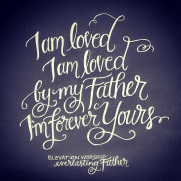Why don’t people embrace the Catholic faith? Why have so many left? Here are two Ideas that I recently heard from a woman named Kathryn Ann Clarke who leads “Direction For Our Times Ministry[1].”
- Is it perhaps because it seems that being a Catholic is too hard? Is it perhaps that we have presented a relationship with Christ as a single-elimination tournament – one mistake and you’re done? People think, “I’ll never get it right. So what’s the point?”
- Dealing with the “sin dilemma.” As we read in today’s Old Testament reading as well as what Jesus says in the Gospel, we do not advocate the simple dismissal of sinful actions. Yet is trying to address sinful actions of others seem hypocritical? We advocate and preach for purity of intention in one area and yet, in another area, we are just as flawed.
Perhaps we can look at five areas that help us in dealing with these spiritual challenges. First let’s make distinction between “sin - based” spirituality vs. “virtue - based” spirituality.
- Understand the dynamic of sin. Yes, God’s invitation to holiness has an undeniable moral demand, but that call to holiness is one that should not be understood as ‘dictatorial’ rules-based. That would be an example of “sin-based” spirituality. Certainly we should resist sin and one reason is that it’s practical. It not only wounds the self, the spirit, the psyche, the soul, it also moves out in the world, affecting others in a negative way and leaving behind human debris and collateral damage.
 2.Understand the love of the Father. Think of the relationship between the grandparent and their grandchild. For example, consider the way a grandparent looks at a 3-year-old when they fall and throw food on the floor and cry endlessly for seemingly no reason at all. These imperfections do not eliminate the love of the grandparent for the child. …. Why? The grandparent understands the physical, intellectual, emotional, psychological and spiritual limitations of the child. It’s the same with our Heavenly Father. The Father understands the physical, intellectual, emotional, psychological and spiritual limitations that we possess as well and our imperfection[i]s and sin does not eliminate the love of the Father for us nor, from His side, sever the relationship.
2.Understand the love of the Father. Think of the relationship between the grandparent and their grandchild. For example, consider the way a grandparent looks at a 3-year-old when they fall and throw food on the floor and cry endlessly for seemingly no reason at all. These imperfections do not eliminate the love of the grandparent for the child. …. Why? The grandparent understands the physical, intellectual, emotional, psychological and spiritual limitations of the child. It’s the same with our Heavenly Father. The Father understands the physical, intellectual, emotional, psychological and spiritual limitations that we possess as well and our imperfection[i]s and sin does not eliminate the love of the Father for us nor, from His side, sever the relationship.
 3.Understand judgement. A woman told a story about a friend of hers who was a ship’s captain. He was a fine man. He was generous, competent and strong. The only problem was that he drank a lot and it really bothered the woman. She saw him perform heroic acts related to his profession as well as charity - for years, yet she could only focused on the captain’s drinking and ignored the virtue. She finally came to the following realization: The captain didn’t have a drinking problem – SHE had the drinking problem. She had a “sin - based” spirituality and not “virtue - based” spirituality: religion without a human-based anthropology. It applied adult moral standards to a 3-year-old. Jesus called such people “experts in the law.” It was cruel and betrayed an arrogance and a coldness of heart with no spirit of love - the type of spirituality that keeps people from The Father.
3.Understand judgement. A woman told a story about a friend of hers who was a ship’s captain. He was a fine man. He was generous, competent and strong. The only problem was that he drank a lot and it really bothered the woman. She saw him perform heroic acts related to his profession as well as charity - for years, yet she could only focused on the captain’s drinking and ignored the virtue. She finally came to the following realization: The captain didn’t have a drinking problem – SHE had the drinking problem. She had a “sin - based” spirituality and not “virtue - based” spirituality: religion without a human-based anthropology. It applied adult moral standards to a 3-year-old. Jesus called such people “experts in the law.” It was cruel and betrayed an arrogance and a coldness of heart with no spirit of love - the type of spirituality that keeps people from The Father.
4.Understand “un-conditional” love. You can’t solve their problem, their issue, their addiction. So put their problem, their issue, their addiction in God’s hands… and leave them there. You worry about your issues instead.
5. Unders tand the dynamics of reaching others away from the faith especially millennials. They’re big on science and data and the need for formulas and proofs, yet also into vampires and wizards and virtual realities. To address their “single-elimination” spirituality, offer them a dynamic, life altering mystery at the sub atomic level – point them towards the sacraments.
tand the dynamics of reaching others away from the faith especially millennials. They’re big on science and data and the need for formulas and proofs, yet also into vampires and wizards and virtual realities. To address their “single-elimination” spirituality, offer them a dynamic, life altering mystery at the sub atomic level – point them towards the sacraments.
————————————————————————-
[i] [i] Full disclosure: Kathryn Ann’s ministry has not been without controversy as seen (for example) in this article. Nevertheless, her writings have received the Imprimatur from her own bishop, her writings have been permitted in the Archdiocese of Philadelphia by Archbishop Charles Chaput and I have personally witness the positive effect that her ministry has had with intelligent, discerning, faith-filled men and women in the Philadelphia area.